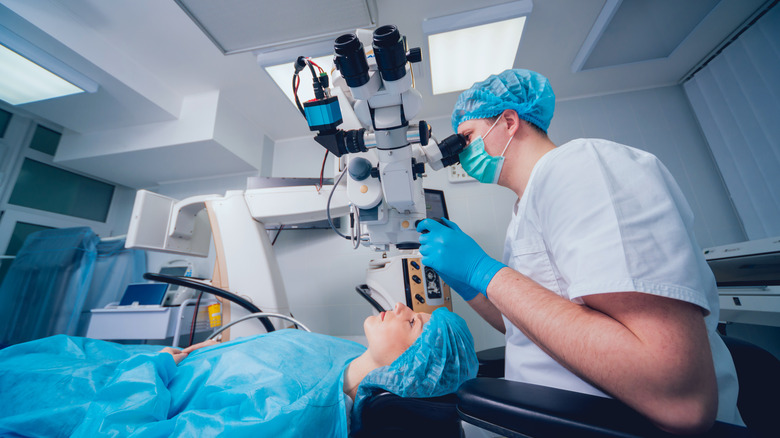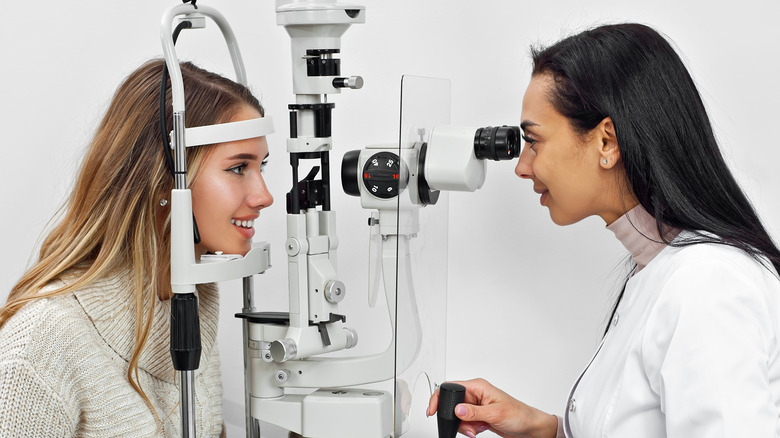What Happens To Your Eyes When You Get LASIK
LASIK eye surgery is a treatment that can fix minor eyesight issues. Also called laser eye surgery or laser vision correction, this procedure typically corrects one of three vision problems: nearsightedness, farsightedness, and astigmatism (via Mayo Clinic). Nearsightedness, or myopia, occurs when your eye is longer than it should be or has a cornea that curves too sharply. As a result, it is difficult to see things that are far away from you. Farsightedness, or hyperopia, is the opposite of nearsightedness and results in it being difficult to see things that are very close to you. Astigmatism occurs when your cornea flattens or curves unevenly, which usually results in blurry vision regardless of distance.
During LASIK surgery, you will remain awake but your surgeon will apply anesthetic drops to your eyes to numb them (via WebMD). They will then put a suction ring on your eye to keep it from moving during the procedure. Once the suction ring is in place, your surgeon will use a laser to cut a small flap in the cornea and pull it back before using another laser to reshape the cornea to correct your eyesight. When the proper corrections have been made, the surgeon will replace the flap to finish the surgery. The flap should self-heal over the next few weeks.
Risks of LASIK surgery
Like any surgical procedure, LASIK comes with risks. According to Verywell Health, some people have a hard time seeing in the dark after this procedure. When you are out at night after LASIK, you may notice glares, halos, and starbursts around other light sources. This can make activities like driving at night stressful. These effects are common right after surgery but should go away in a few days or weeks.
While your eyes heal, you may also notice changes in vision, dry or itchy eyes, sensitivity to light, and bruising on your eyes (via WebMD). In rare cases, this surgery can cause infections or permanent vision loss. However, experts generally agree that this is a safe procedure. "It is surgery, so there are risks and benefits, just like any other surgery," Stephen Slade, MD, an ophthalmologist at Slade & Baker Vision, told Health. "After 20 years, 20 million procedures, and more than 7,000 clinical studies, we know that LASIK is a terrific vision correction option." Talk to your eye doctor if you are interested in LASIK surgery.


